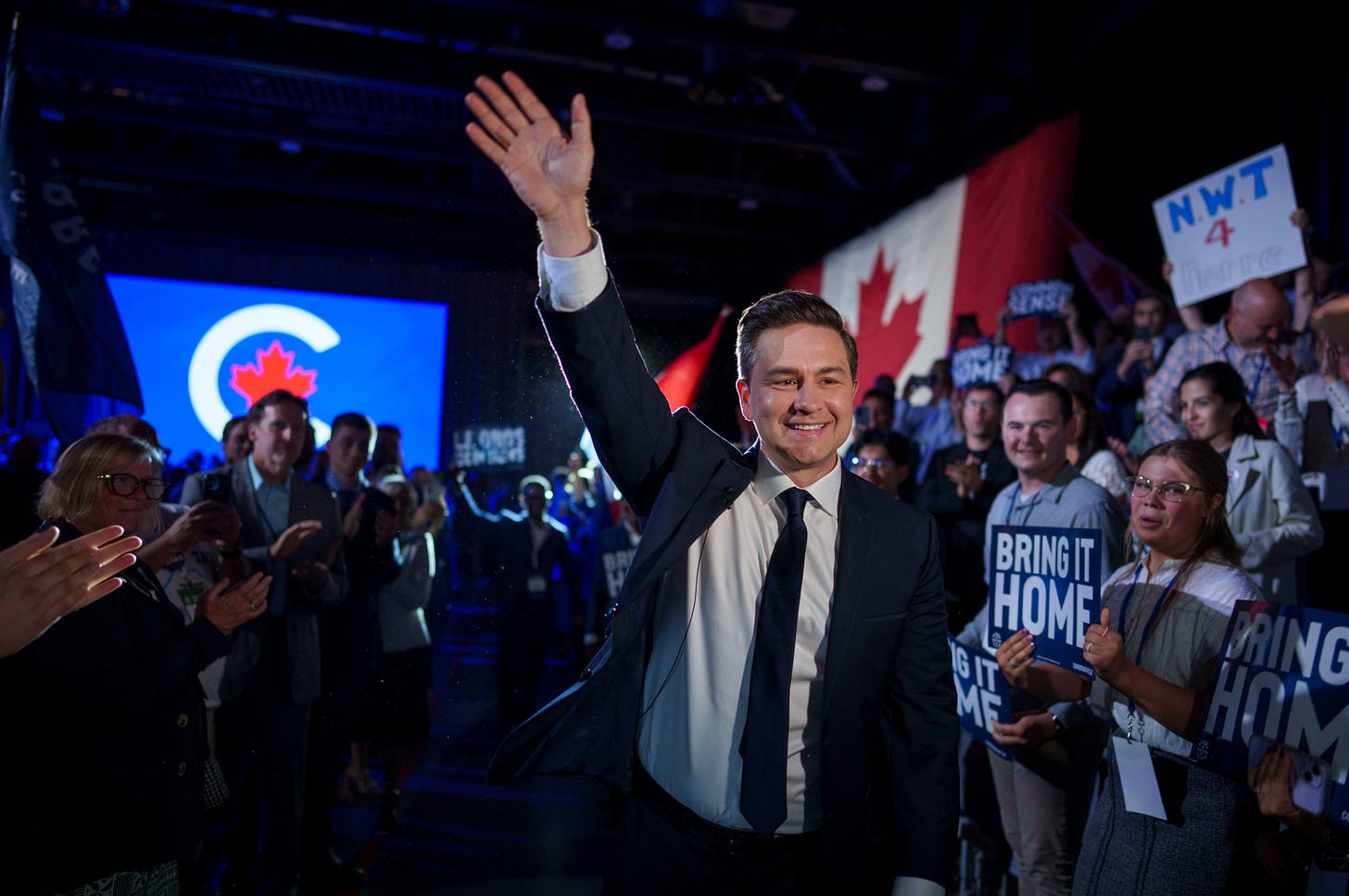Canada's Conservative Grassroots Reject Gender Ideology
But will leadership listen?
Canadian political silence on gender ideology has been broken for good. It started late last spring with New Brunswick Primer Blaine Higgs raising the issue of schools socially transitioning children. More recently, the issue took center stage at the Conservative Party of Canada convention that took place in Quebec City from September 7 to 9.
At the convention, Conservative delegates passed not just one, but two resolutions directly related to gender ideology and its effects on women and children.
Motion C – 7, which was passed with 69% of votes in favor, reads:
A Conservative government will protect children by prohibiting life altering medicinal or surgical interventions on minors under 18 to treat gender confusion or dysphoria, and encourage positive mental and physical health support for all Canadians suffering from gender dysphoria and related mental health challenges.
Motion C – 15, which passed with 87% of votes…




